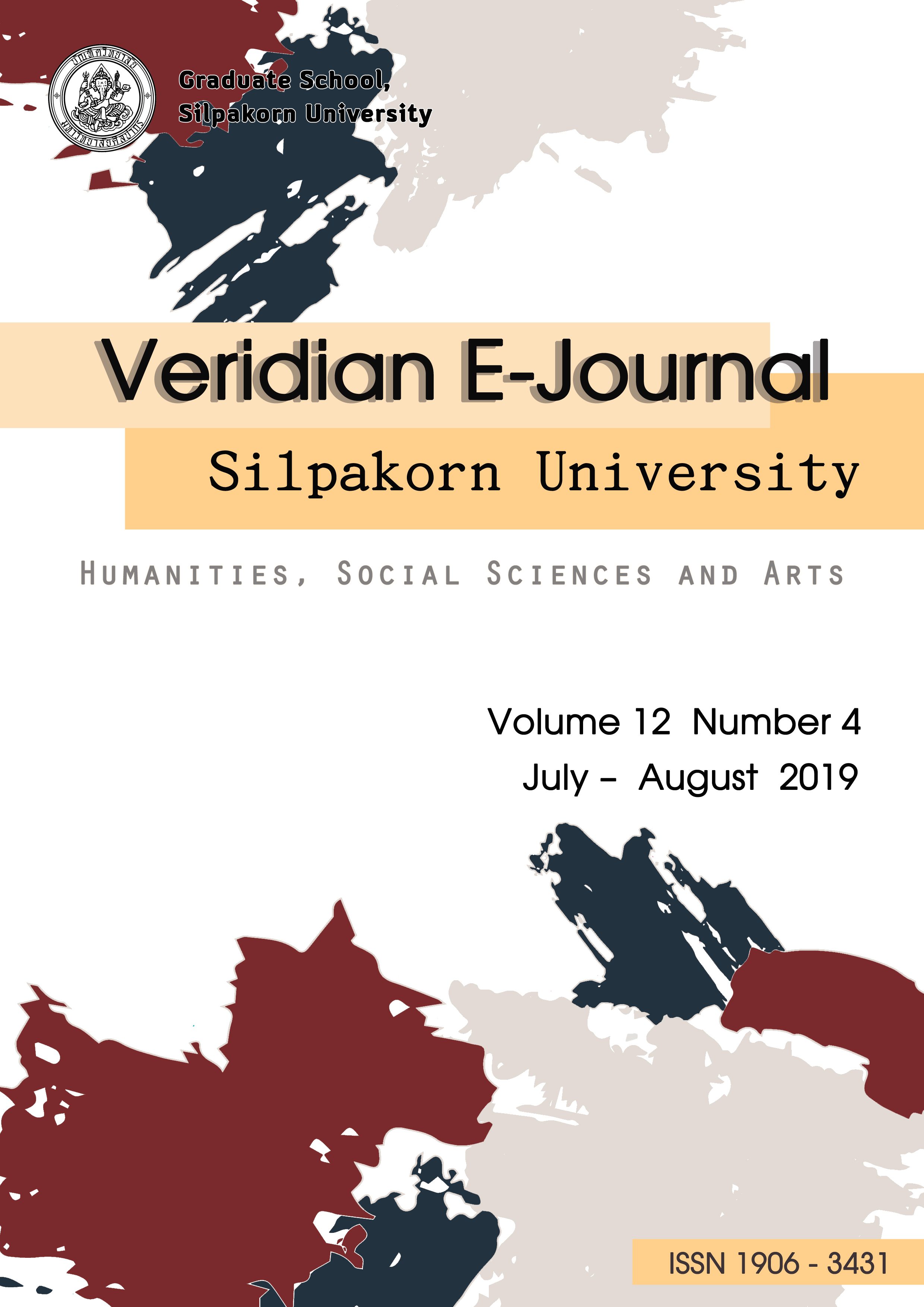ผลกระทบของต้นทุนทางจิตวิทยาต่อการมุ่งเน้นเป็นผู้ประกอบการธุรกิจสตาร์ทอัพรุ่นเยาว์ของนักศึกษาระดับปริญญาตรีด้านบริหารธุรกิจ (The Effect of Psychological Capital on Young Start–up Entrepreneurial Orientation of BBA Students)
Main Article Content
บทคัดย่อ
การวิจัยครั้งนี้มีวัตถุประสงค์เพื่อศึกษา 1) ผลกระทบของปัจจัยต้นทุนทางจิตวิทยาด้านการมองโลกในแง่บวกที่ส่งผลต่อการรับรู้ความสามารถของตนเอง และ 2) ผลกระทบของปัจจัยต้นทุนทางจิตวิทยาด้านความมุ่งมั่นในการทำงาน การปรับตัวให้เข้ากับสถานการณ์ การมองโลกในแง่บวก การรับรู้ความสามารถของตนเองที่ส่งต่อการมุ่งเน้นเป็นผู้ประกอบการธุรกิจสตาร์ทอัพรุ่นเยาว์ของนักศึกษาระดับปริญญาตรีด้านบริหารธุรกิจ โดยใช้ระเบียบวิธีวิจัยเชิงปริมาณทำการวิจัยเชิงประจักษ์ และใช้แบบสอบถามเป็นเครื่องมือในการเก็บรวบรวมข้อมูลจากนักศึกษาระดับปริญญาตรีด้านบริหารธุรกิจ จำนวน 240 คน โดยใช้วิธีสุ่มตัวอย่างแบบสะดวก จากนั้นทำการวิเคราะห์โมเดลการวัด และวิเคราะห์โมเดลสมการโครงสร้างก่อนการทำการตรวจสอบสมมติฐานด้วยวิธีการวิเคราะห์ข้อมูลสถิติแบบเส้นทางกำลังสองน้อยที่สุดบางส่วน (Partial Least Square: PLS) ด้วยโปรแกรมสำเร็จรูป SmartPLS
ผลการวิจัยพบว่า ปัจจัยต้นทุนทางจิตวิทยาด้านการมองโลกในแง่บวกส่งผลเชิงบวกต่อการรับรู้ความสามารถของตนเอง นอกจากนี้ การรับรู้ถึงความสามารถของตนเองยังเป็นปัจจัยสำคัญที่ส่งผลเชิงบวกต่อการมุ่งเน้นเป็นผู้ประกอบการธุรกิจสตาร์ทอัพรุ่นเยาว์ของนักศึกษาระดับปริญญาตรีด้านบริหารธุรกิจ โดยการมองโลกในแง่บวกมีอิทธิพลทางตรงต่อการรับรู้ความสามารถของตนเอง และยังมีอิทธิพลทางอ้อมต่อการมุ่งเน้นเป็นผู้ประกอบการธุรกิจสตาร์ทอัพรุ่นเยาว์ และการรับรู้ความสามารถของตนเองมีอิทธิพลทางตรงต่อการมุ่งเน้นเป็นผู้ประกอบการธุรกิจสตาร์ทอัพรุ่นเยาว์ของนักศึกษาระดับปริญญาตรีด้านบริหารธุรกิจ ในขณะที่ความมุ่งมั่นในการทำงาน การปรับตัวให้เข้ากับสถานการณ์ และการมองโลกในแง่บวกไม่มีอิทธิพลทางตรงต่อการมุ่งเน้นเป็นผู้ประกอบการธุรกิจสตาร์ทอัพรุ่นเยาว์ของนักศึกษาระดับปริญญาตรีด้านบริหารธุรกิจ โมเดลสมการโครงสร้างสามารถอธิบายผลของการมุ่งเน้นเป็นผู้ประกอบการธุรกิจสตาร์ทอัพรุ่นเยาว์ของนักศึกษาระดับปริญญาตรีด้านบริหารธุรกิจ ได้ร้อยละ (R2 =25.70 ,R2adj=24.40) จากผลการวิจัยเป็นประโยชน์ต่อสถาบันการศึกษาหน่วยบ่มเพาะธุรกิจ และผู้มีส่วนเกี่ยวข้องในการเพิ่มระดับของการมุ่งเน้นเป็นผู้ประกอบการธุรกิจสตาร์ทอัพรุ่นเยาว์ของนักศึกษาระดับปริญญาตรีด้านบริหารธุรกิจ โดยผ่านการรับรู้ความสามารถของตนเองที่เกิดจากการมองโลก ในแง่บวก
This research aims to study 1) the effect of psychological capital factor in optimism on self-efficacy; and 2) the effect of psychological capital factor in work passion, flexibility, optimism and self-efficacy on young start–up entrepreneurial orientation. The quantitative survey research method is used for this study and the research tool is a questionnaire to collect data from 240
BBA students as the sample size by convenience sampling. Then analysis the measurement model and structural equation modeling before hypotheses testing by Partial Least Square Structural Equation Modeling (PLS-SEM) with SmartPLS software.
The results found that the psychological capital factor in optimism had positively effects on self-efficacy. Moreover, the self-efficacy had the most influential factor that positively effects on young start–up entrepreneurial orientation of BBA students. Which the optimism directly affected self-efficacy and indirectly influenced young start–up entrepreneurial orientation of BBA students. In addition the self-efficacy directly affected young start–up entrepreneurial orientation of BBA students. While the work passion, flexibility and optimism did not directly affect the young start–up entrepreneurial orientation. The structural equation model can explain young start–up entrepreneurial orientation of BBA students at 25.70 percent (R2=0.257, R2adj=0.244). The results of this research are beneficial to educational institution, business incubator and stakeholder to increase the young start–up entrepreneurial orientation of BBA students through the self-efficacy by optimism.

